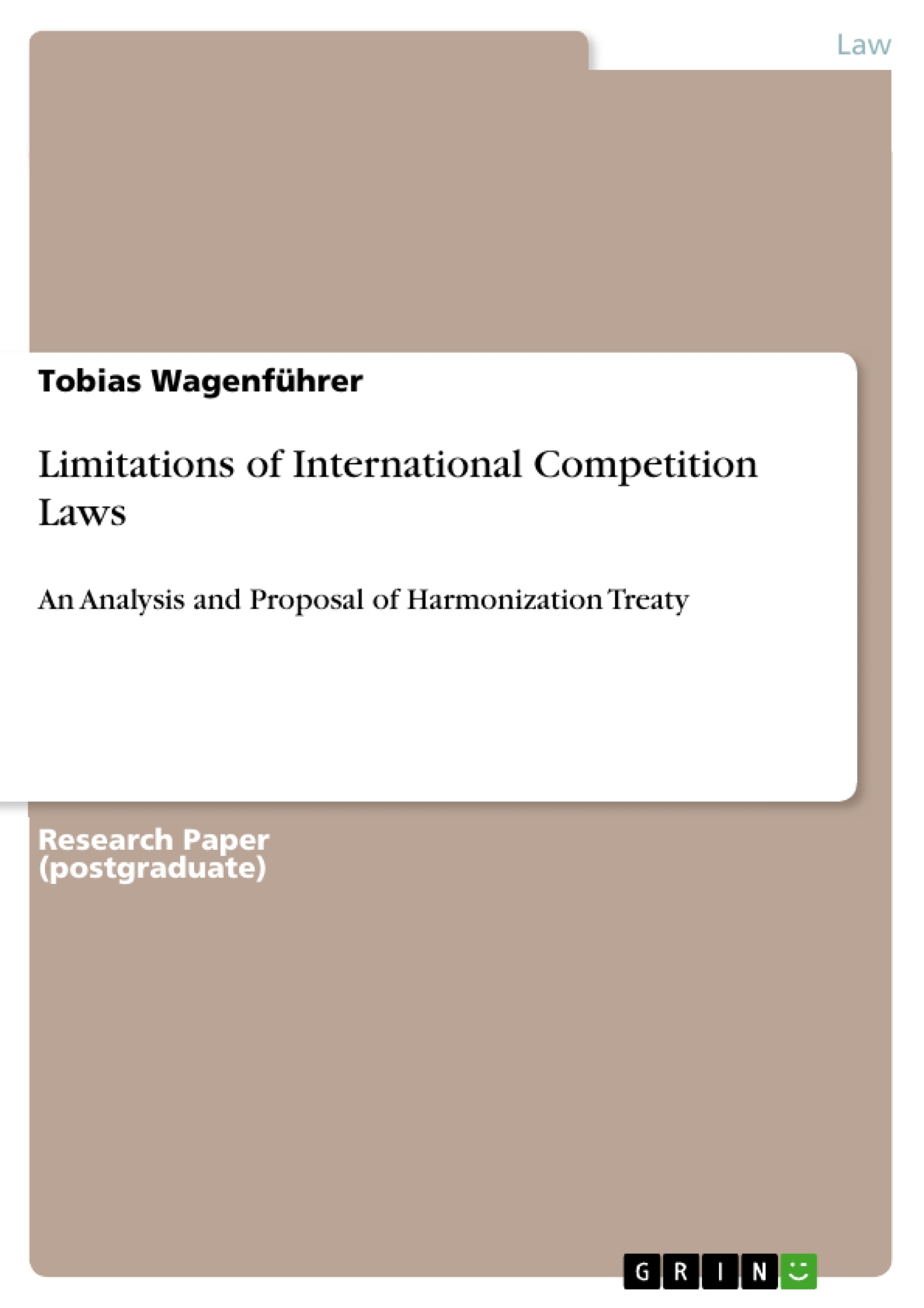This paper uses a blend of empirical literature and real-life examples of merger approvals and rejections to derive limits of international Competition Laws (CL). I separate the detected problems in generic weaknesses that relate to the nature of CL itself from derivative weaknesses that harken back to shady regulation and disharmonies across the globe.
Generic weaknesses encompass an unclear balance of power between Intellection Property (IP) Law and CL, the CL’s potentially slowing effect on innovation, the economically muddled rationale behind the law and the distortion of its enforcement due to the law’s historical evolution and differences in cultural values.
Derivative weaknesses are mainly based on the creation of misleading incentives derived from conflicting CLs and their enforcement across the globe.
The establishment of an international harmonization treaty could be discussed in one of the upcoming WTO rounds to reach an agreement about the mutually beneficial maximization of global welfare.
Inhaltsverzeichnis (Table of Contents)
- Introduction
- Section One - Generic Weaknesses
- Economic Rationale
- Conflict With IP Law
- Slowdown Of Innovation
- Value-Dependent Enforcement
- Section Two - Derivative Weaknesses
- MNCs Torn Between Different Laws
- Protectionism
- Flawed Estimations
- Extraterritorial Enforcement And Regulatory Circumvention
- Section Three - Foundation For An International Harmonization Treaty
Zielsetzung und Themenschwerpunkte (Objectives and Key Themes)
This paper aims to analyze the current implementation of Competition Laws (CLs) around the globe, identifying and classifying weaknesses, and proposing solutions for their improvement. It focuses on the limitations of CLs, both those inherent to the nature of the law and those arising from its inconsistent application across different jurisdictions. The paper also explores the potential benefits of international harmonization of CLs.
- The ambiguous economic rationale of CLs.
- The tension between CLs and intellectual property laws.
- The potential for CLs to slow innovation.
- The impact of cultural values and historical evolution on CL enforcement.
- The challenges of harmonizing CLs across different jurisdictions.
Zusammenfassung der Kapitel (Chapter Summaries)
- Introduction: This section introduces the concept of Competition Laws (CLs) and their potential benefits for maximizing welfare, highlighting the ambiguity surrounding their effectiveness and the need for a critical analysis of their implementation. The paper focuses on four major CLs: the Chinese Anti-Monopoly Law (AML), the United States (US) Antitrust Law, the European Union (EU) CL, and the Japanese Anti-Monopoly Act (JAMA). It aims to analyze their diverse approaches and propose solutions for harmonization.
- Section One - Generic Weaknesses: This section delves into the fundamental challenges inherent in CLs, exploring the ambiguity of their economic rationale, their potential conflicts with intellectual property (IP) laws, their potential to hinder innovation, and the impact of cultural and historical factors on their enforcement.
- Section Two - Derivative Weaknesses: This section focuses on the challenges arising from the differing implementation of CLs across different jurisdictions, such as conflicting laws and their enforcement, protectionist practices, and difficulties in estimating the impact of CLs. It also examines the issue of extraterritorial enforcement and regulatory circumvention.
Schlüsselwörter (Keywords)
This paper focuses on the international legal environment of business, with a specific emphasis on Competition Laws (CLs). Key topics include the economic rationale of CLs, the relationship between CLs and intellectual property (IP) laws, the impact of CLs on innovation, the challenges of harmonizing CLs across different jurisdictions, and the potential benefits of an international harmonization treaty for global welfare. The analysis incorporates real-world examples of merger approvals and rejections, and draws upon research from diverse legal and economic perspectives.
- Arbeit zitieren
- Tobias Wagenführer (Autor:in), 2010, Limitations of International Competition Laws, München, GRIN Verlag, https://www.grin.com/document/181465



